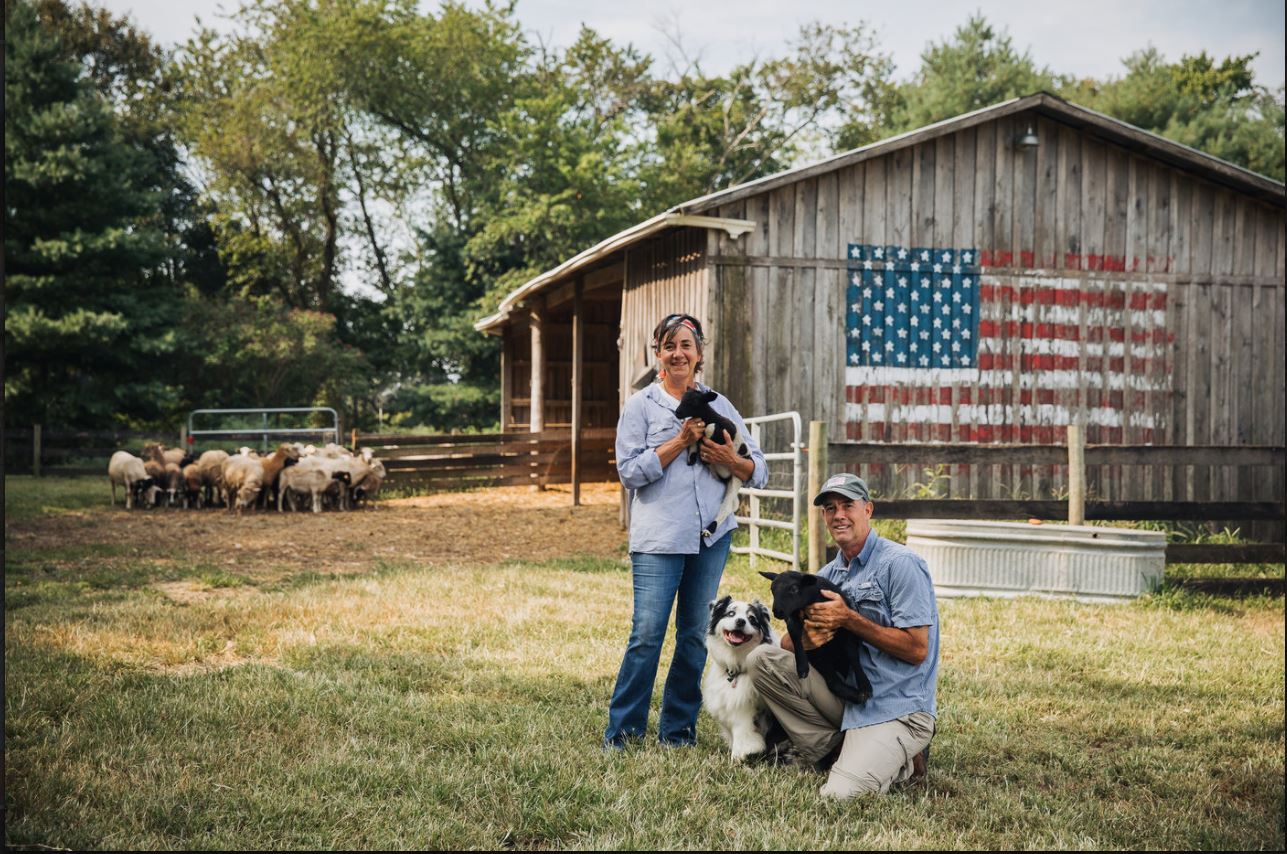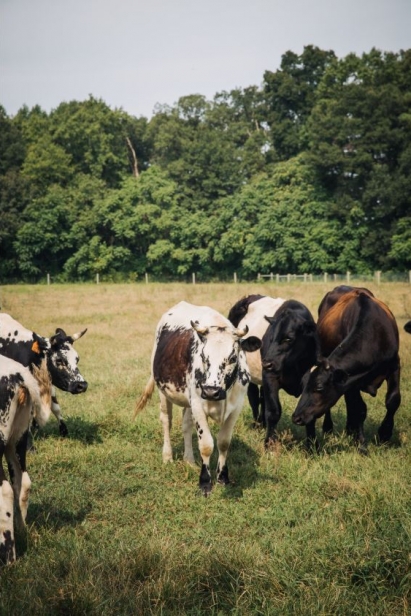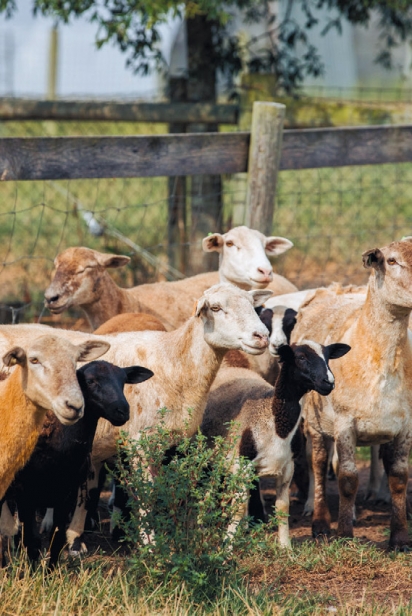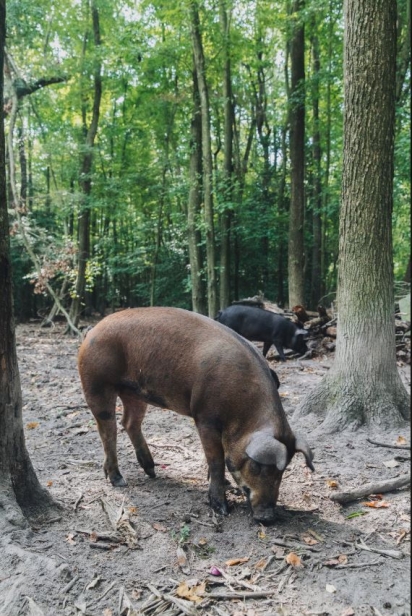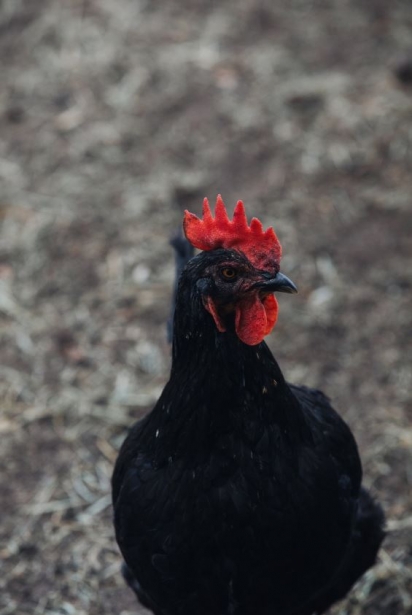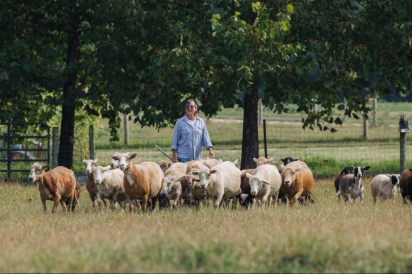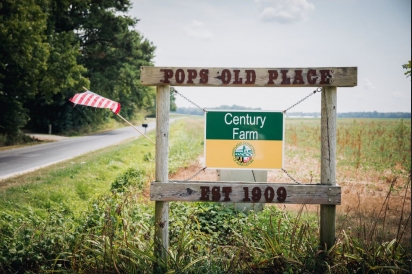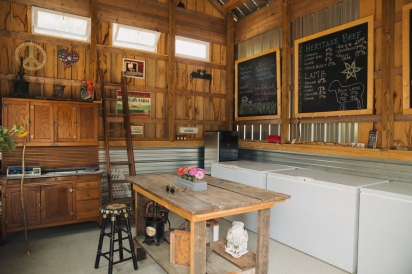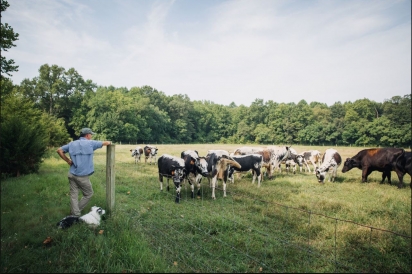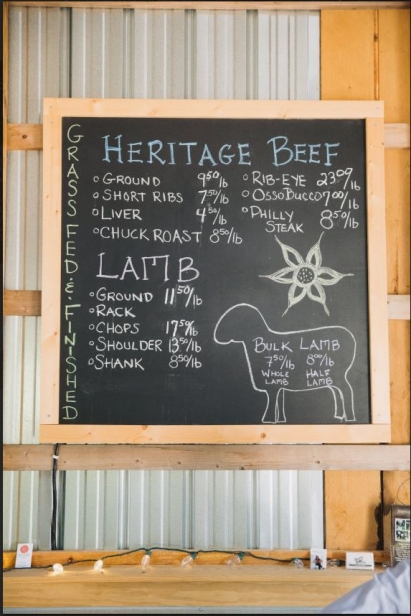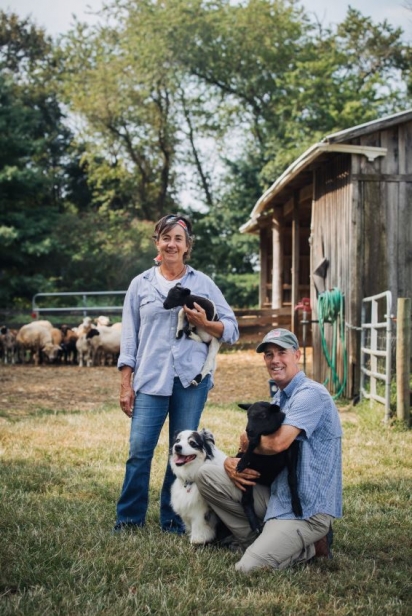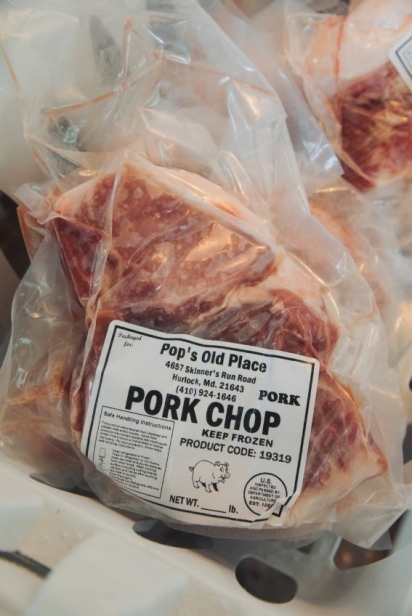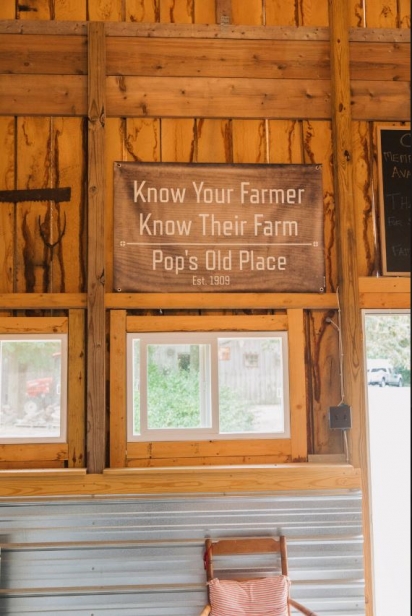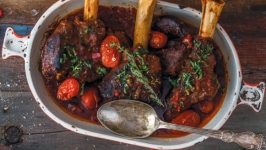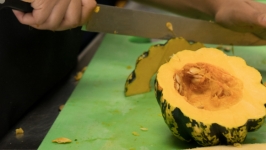A Rare Breed: Pop's Old Place Farm
A worn dirt lane leads to Pop’s Old Place, surrounded by vibrant pastures fifteen miles east of Easton, Maryland. Darlene Goehringer and her husband Arthur Wilson have been farming her grandfather’s farm in Dorchester County, Maryland, for the past twenty years, but Pop’s Old Place is a Maryland Century Farm—a farm that has been continuously cultivated by the same family for at least one hundred years. Darlene’s grandparents, Gustaf and Christiana Goehringer, second-generation immigrants from Bavaria, Germany, bought seventy acres in 1909 and founded the Goehringer family farm.
Two decades ago, Darlene’s father was growing corn and soybeans. Darlene and Arthur eventually took responsibility for the land, built a simple farmhouse, planted oaks and sycamores for shade, and purchased hens for free-range eggs, along with a sheepdog. Unsatisfied with the bland taste of conventional supermarket meat, they decided to raise their own, committed to giving their animals a life of fresh air and sunshine. Since then, they’ve been working steadily to convert the land from grain tillage to nutritious pasture—a multispecies grass mix of clover, alfalfa, and buckwheat–for their cows, sheep, and hens.
Before buying livestock, Darlene and Arthur researched heritage breeds–older breeds raised before the rise of modern industrial agriculture following World War II–that would thrive in the Mid-Atlantic climate. For cattle, they chose Randall Lineback, the rarest breed of cow in the U.S. Developed by early American colonists in the seventeenth century as a multipurpose cow for beef, milk, and oxen, Randalls almost disappeared in the mid-twentieth century, preserved solely by one farm in Vermont. Today, only about 400 Randall cows are available for market in the entire country. Pasture-raised, the Randall Lineback have a much lower fat content than supermarket beef, and a rich flavor.
For sheep, the couple chose the Katahdin, a breed originally from Maine and named after the state’s highest peak, Mount Katahdin. Katahdin are renowned for good flocking instincts, shedding their winter coat (which eliminates the need for shearing), and possessing a mild flavor. Feeding exclusively on pasture after weaning, it takes ten to eleven months for the lambs to reach one hundred pounds for processing at a local meat locker.
Like the Randall Lineback cattle, the pigs on Pop’s Old Place are also a critically rare breed, the Mulefoot, a docile breed with a solid black coat. Once a popular breed at the turn of the twentieth century, it was saved from extinction by a Missouri farmer in 1964. Today, there are only about 550 Mulefoot on the market. The pork is a darker meat than commercial pork and is exceptionally tender. Pop’s Old Place pigs forage in the woods and pasture on bugs, worms, roots, and fallen tree nuts, supplemented by fruits and vegetables from the farm, as well as a non-GMO grain mix locally milled by an Amish farmer in Delaware.
After processing, all of the meat is available for sale in the Pop’s Old Place Farm Market, which the couple built two years ago. The neat and tidy board-and-batten one-room store is blessed by a few ancient horseshoes and open for business on the weekends. Darlene encourages her customers to “just shop from the freezer, be flexible and see what’s available.” Open the chest freezer and you’ll find every part of beef, lamb, and pork. “Our customers are mostly foodies, people who care about the welfare of the animals they’re eating. I have one customer who regularly drives all the way from Silver Spring!”
The farmers themselves eat nose-to-tail, utilizing all parts of the animals, wasting nothing. The couple renders their own lard for cooking, use the bones to make rich broth, and feed their dogs any leftover odd bits.
In addition to the labor-intensive demands of farming, Darlene and Arthur also work full-time jobs. Darlene works a sales job plus caring for the flocks and herds, and Arthur manages his own business on top of keeping all the farm equipment up and running. “We couldn’t do this without each other; we pull equal weight,” Darlene said. “I get all the credit because I’m the face of the business. But there isn’t anything Arthur can’t do mechanically or electrically. I don’t know how people could do this without a willing partner.”
Hopefully, the increasing customer demand for local grass-fed meat will allow more farms to help restore the rich soils of Delmarva needed for healthy pasture in support of beautiful flocks. You can support the work of these farmers and enjoy the fruits of their labor by looking for local grass-fed meats for your table.
Pop’s Old Place Farm
4657 Skinners Run Road, Hurlock, MD (410) 924-1646
Facebook Instagram


